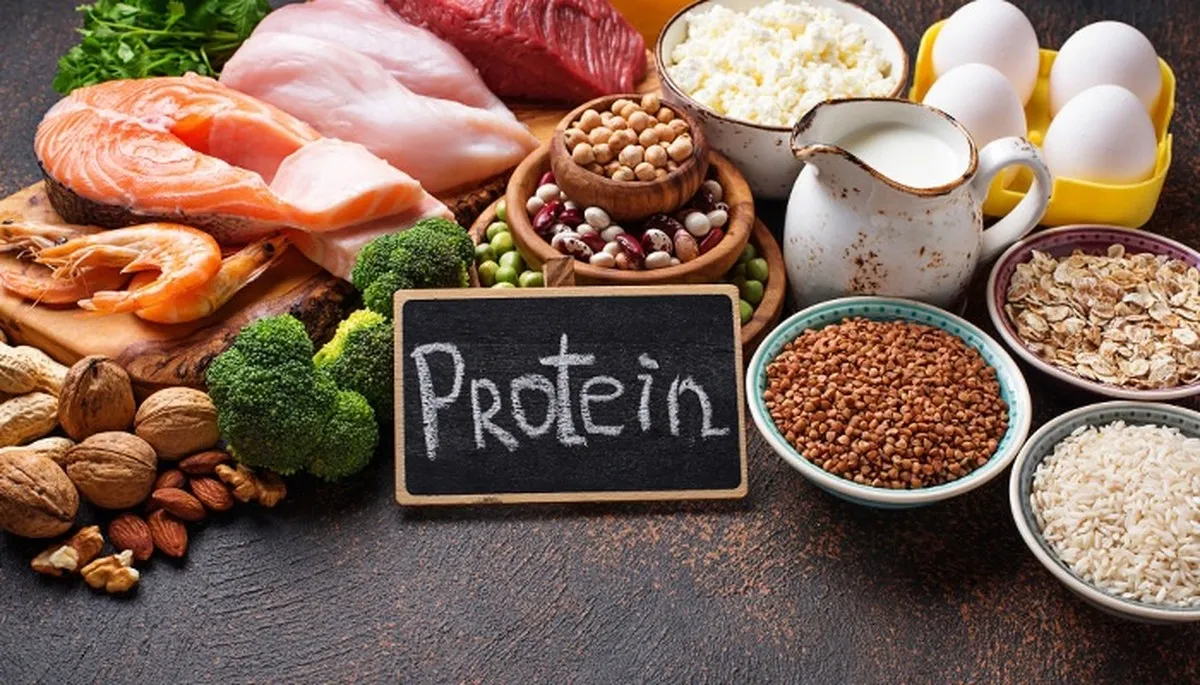07/05/2025
07/05/2025

NEW YORK, May 7: Lately, protein seems to be everywhere, from protein-packed ice cream to protein-laden popcorn. It’s easy to get lost in the hype, but while protein is an essential nutrient, is it possible to overdo it? The Recommended Daily Allowance (RDA) for protein is 0.8 grams per kilogram of body weight, just enough to prevent deficiency. But for those with active lifestyles, pregnancy, or recovery goals, higher protein intake is often advised. Still, there’s no clear “upper limit” for protein, which leaves a lot of room for confusion. Dietitian Dawn Jackson Blatner suggests protein should make up 10 to 35% of your daily calories, ensuring room for other vital nutrients like healthy fats and carbs.
Before you dive into that next protein-packed snack, consider these five reasons why too much protein might do more harm than good:
1. It can crowd out other nutrient-rich foods
High-protein diets may fill you up, but they can also cause you to neglect other important, nutrient-dense foods. “Very high-protein diets may push out fruits, vegetables, and whole grains, which provide essential fiber, antioxidants, and vitamins,” says nutritionist Dawn Jackson Blatner. This can lead to nutrient deficiencies over time, weakening your immune system and affecting digestion. To maintain balance, Blatner recommends incorporating protein into every meal but also making space for a variety of colorful produce and plant-based foods.
2. It can cause gut health imbalances
Protein-packed foods, particularly animal-based sources like chicken, fish, or eggs, are often low in fiber. Since fiber is crucial for a healthy digestive system, this imbalance can lead to gut issues. “High-protein diets, especially those focusing on animal products, may disrupt the balance of beneficial gut bacteria,” explains Blatner. Fiber from plant-based foods, such as beans and lentils, helps keep the gut microbiome thriving, supporting digestion and combating constipation. Just like a well-maintained garden needs variety to flourish, your gut needs a diverse range of plant-based foods.
3. It can put extra strain on your kidneys
Your kidneys are vital for filtering waste from your body, but a high-protein diet can place unnecessary stress on them. Long-term, excessive protein intake may overwork your kidneys and raise the risk of kidney damage. “Consuming large amounts of protein, particularly over time, can lead to kidney strain,” says dietitian Kayla Farrell. Animal protein, in particular, may increase the risk of kidney stones, as it elevates the acidity in your urine, leading to the formation of stones. To protect your kidneys, it’s important to monitor your protein intake and work with a registered dietitian to determine how much you actually need.
4. It could increase your risk for heart disease
Not all protein sources are created equal. A diet high in red and processed meats is linked to increased heart disease risk. “Processed meats like sausage, bacon, and deli meats, as well as red meats like beef, pork, and lamb, contain higher levels of saturated fats and sodium,” explains Farrell. These ingredients contribute to heart disease risk. To protect your heart, opt for lean protein sources like chicken breast, fish, or plant-based proteins such as tofu, beans, and lentils.
5. It could raise your risk for cancer
Excessive consumption of red and processed meats is also associated with an increased risk of certain cancers. According to the American Institute for Cancer Research (AICR), consuming more than 12 to 18 ounces of red meat per week (or 4 to 6 ounces a day) may increase the risk of colorectal cancer. Processed meats, such as hotdogs, have also been linked to a higher risk of colorectal cancer. “Studies have shown that processed meats specifically can increase the risk of colorectal cancer, among other types,” Farrell adds. To reduce cancer risk, enjoy red meat sparingly and limit processed meats.
Protein is an essential part of a healthy diet, but moderation is key. Excessive protein intake can increase your risk of kidney damage, heart disease, cancer, and digestive issues, while also displacing other important nutrients. To maintain a balanced, healthy lifestyle, aim for a varied diet that includes a wide range of protein sources, as well as plenty of fruits, vegetables, and whole grains. Remember, it’s all about balance!


